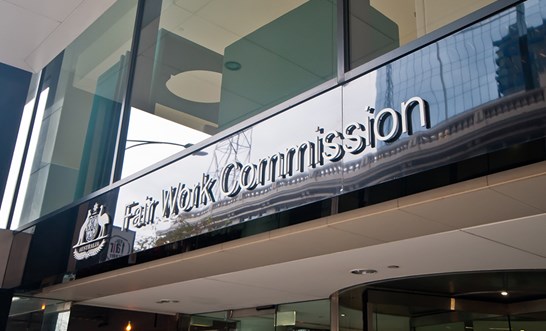Category: Industrial & Employment Law

Closing Loopholes No. 2: independent contractor arrangements
From 26 August 2024, the Fair Work Act definition of “employee” has changed. The changes were made to address issues related to the classification and treatment of independent contractors, ensuring fairer work conditions and protections for such workers.

New rules for fixed term employment contracts from December 2023
Fixed term employment contracts are contracts that terminate at the end of an agreed specified period. Since December 2023, changes to the Fair Work Act 2009 now ensure that fixed term employment contracts have a maximum contract period of no more than two years.

Can my employer use a restraint of trade to prevent me from working for a competitor?
In this blog, we focus on one particular kind of restraint, the “non-compete” covenant, which is an obligation contained within a contract of employment that expresses itself as preventing an employee from working for one or more alternative employers or a certain class of them or establishing a competing business of their own.

Pay equity under the Fair Work Act - Equal Remuneration Orders
Despite significant headway in recent years in campaigns for equal pay for women, we are still some way off pay equality. In 2022, the Albanese Government took steps to expand that power in the Fair Work Legislation Amendment (Secure Jobs, Better Pay) Act 2022. The full effect of these recent amendments has yet to be realised.

Can employees be dismissed for their conduct outside of work hours?
Absent specific circumstances being established, employers have no right to control their employees’ conduct outside of work. However, if an employee’s out of work conduct has a significant and adverse effect on their employment, then an employer may be able to take disciplinary action, which may include termination of employment.

Benefits of contemporaneous notes in legal proceedings
If you’re in a dispute that may end up in legal proceedings, contemporaneous file notes can be used as documentary evidence to corroborate direct oral evidence of a fact. They can be extremely useful in a variety of different situations, including disciplinary, bullying or discrimination issues in the workplace.

Closing Loopholes sees significant changes to the Fair Work Act from December 2023
In December 2023, the Fair Work Legislation Amendment (Closing Loopholes) Bill 2023 received royal assent, which will see significant changes to the Fair Work Act. The various changes will take effect at different times from December 2023 through to 2025. None of the changes will operate retrospectively.

Bullying at work – your workplace rights
We explore what behaviour constitutes bullying under the Fair Work Act and explain the formal complaint pathway to apply to the Fair Work Commission for an order to stop bullying at work.

How to appeal a Fair Work Commission decision
If you’ve participated in a Fair Work Commission hearing about an employment law issue and you’re not satisfied with the result, you might seek to appeal. In this article, we look at grounds for an appeal of a FWC decision and provide a comprehensive overview of the process for appealing a decision.

How social media outside the workplace can impact your employment
Social media outside of working hours can serve as a platform for problematic behaviour. Instances of bullying, vilification, discrimination, and harassment frequently manifest on social media platforms. Employees should be aware that their rights and responsibilities in respect of social media use may extend beyond the workplace.

Sexual harassment protections under the Fair Work Act
Federal laws which came into effect in March 2023, prohibit sexual harassment in connection with work. In addition to orders to stop future sexual harassment, workers now benefit from the possibility of a final determination of sexual harassment complaints, including the possibility of compensation and penalty.

Hall Payne wins successful appeal on employer misrepresentations during enterprise bargaining
Representing our client, the NTEU, we had an excellent outcome in relation to misrepresentations made during the approval process for an enterprise agreement at a large university. The Full Bench of the Fair Work Commission determined the enterprise agreement was not genuinely agreed.
